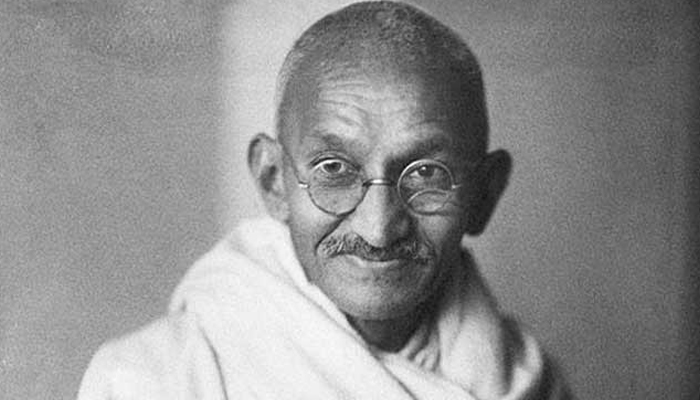TRENDING TAGS :
New book documents Gandhi's legacy launched in South Africa
A new book on Mahatma Gandhi launched here documents how attempts to remember his sojourn in South Africa were stifled by the apartheid-era minority white government and revived after former president Nelson Mandela acknowledged his role in starting off democracy in the country.
Johannesburg: A new book on Mahatma Gandhi launched here documents how attempts to remember his sojourn in South Africa were stifled by the apartheid-era minority white government and revived after former president Nelson Mandela acknowledged his role in starting off democracy in the country.
ALSO READ: Ganga canal closed for cleaning; to affect water supply in 15 UP districts
The book was launched on Mahatma Gandhi's 150th birth anniversary.
'150 Years of Celebrating the Mahatma the South African Legacy', by author and journalist Fakir Hassen, is a 160-page coffee table that records how commemorations of Gandhi's activities, including his birth and death anniversaries, were confined to the local Indian community only.
"Honoured across the world with statues, busts, and streets named after him, the apartheid government in South Africa provided absolutely no support, even while his great-grandchildren continued activities at the Phoenix settlement near Durban which Gandhi started during his tenure there.
The Phoenix settlement served as Mahatma Gandhi's home during his stay in South Africa.
"But as the advent of democracy dawned in 1990, a new wave of public acknowledgement of the great leader's role started in South Africa, sparked particularly by comments made by the late President Mandela," Hassen writes in the book.
"Buoyed by this, there have been scores of Gandhian events added during the first quarter century of South Africa's new-found democracy to the few that had been established already, such as the 30-year-old annual Gandhi Walk in Lenasia."
In 1915, the man who had come to South Africa as the young lawyer Mohandas Karamchand Gandhi two decades earlier, left to return to his homeland, where he was destined to lead India to independence from British rule.
ALSO READ: Kolkata: Ramps for differently abled visitors in city pandals
By that time, Gandhi had already become a renowned leader in South Africa in opposing the discriminatory laws, particularly against the Indian community.
The book will be placed in public, university and high school libraries across the country free of charge through sponsorship from South African and expatriate Indian companies.
It includes chapters about statues, busts and exhibitions; awards and accolades, both to Gandhi and to others made in his name; the Phoenix Settlements and Tolstoy Farm communes that he started in Durban and Johanensburg respectively; and how Gandhi even inspired coins, comics, and sporting activities in the country.
"From the unveiling of statues, commemorative coins, and conferences to various awards in his name and attempts to revive the once vibrant Tolstoy Farm near Johannesburg, I have been privileged to write about this and capture some of it in photographs," Hassen said.
"What this book is about is in no way any academic work, but purely a collection of articles I have written and pictures I have taken about Gandhian events in South Africa, especially since 1994 when we achieved our democracy, he said.
"Rather, it is an attempt to record in a small way some of the activities that have seen people remember Gandhi a century and a half later," Hassen concluded.
ALSO READ: Taliban meet US peace envoy for first time since ‘dead’ deal



